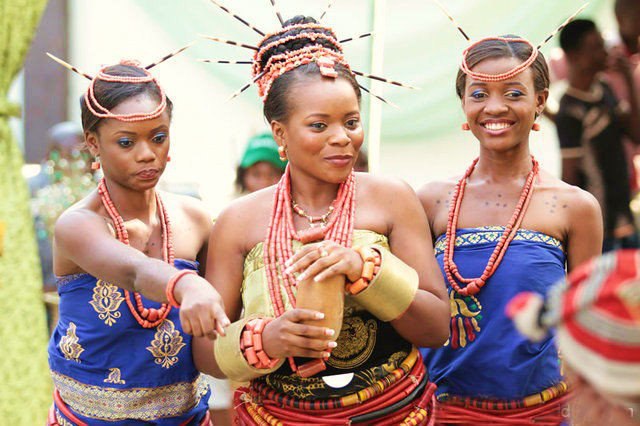Every culture and tradition has its own set of rules for conducting marriages. The institution of marriage has laid down traditional processes that must be followed before two people can be called husband and wife. In the olden days, marriage activities and bride price negotiations were strictly left to the elders. They followed laid-down steps.
The middle man, also known as “onye aka ebe” or “nwa ndu uzo,” is an aged man who acts as a medium through which enquiries about both families are made. Replies and agreements are also reached through this middle man.
When a man sets his heart on a woman he wishes to marry, he confides in his parents, who then enlist the aid of a trusted intermediary. This intermediary, often referred to as the ‘middleman’ (Onye aka ebe or nwa ndu uzo), takes on the responsibility of initiating contact with the bride’s family, conducting inquiries, and facilitating the initial stages of the marriage process.
The middleman’s role is multifaceted. He diligently assesses the suitability of the prospective bride, delving into her character and background. Equally crucial is his investigation into the bride’s family lineage, ensuring compatibility and identifying any potential familial connections or disparities.
Once satisfied with his findings, the middleman communicates his assessment to the groom’s parents and the groom himself, setting the stage for the commencement of formal proceedings.
The first visit, often termed as a ‘formality visit,’ sees the prospective groom accompanied by the middleman and a trusted companion. This visit serves as an opportunity for the groom to acquaint himself with the bride’s family and formally declare his intentions.
Subsequent visits progress in formality and significance. The inclusion of the groom’s parents and close relatives in the second visit marks a pivotal moment for deeper discussions and the solidification of arrangements, including the negotiation of the bride price.
The culmination of these visits occurs during the third encounter, known as the ‘introduction.’ Symbolically, a generous offering of palm wine is brought forth as discussions center around finalizing the terms and conditions of the bride price payment.
This ancient tradition, steeped in cultural significance, underscores the importance of familial connections and mutual respect in the sacred union of marriage.
READ ALSO: The Account Of The Igbo Political Journey From (1914-2019)
During the “ife ana” or “inene Ana” or “imalu ana” visit, which is the third visit, the prospective bride goes to the prospective groom’s house to get acquainted with his family and know where he comes from. She stays there for a period of three to seven days.
The purpose of this visit is for the parents of the prospective groom to familiarize themselves with the character of the prospective bride. The date for the payment of the bride price is fixed during this visit, depending on the disposition of the prospective bride towards the family of the prospective groom.
If the prospective bride finds the visit favorable, she gives her family the go-ahead. On the day of the bride price payment, which is the last day of the visit, the groom supplies the bride’s family with the items they requested for the marriage to be sanctioned.
Food is provided by the bride’s family to entertain the visitors. Only the elders, men only, are allowed into the room where the bride price is paid. After the payment of the bride price, both families recognize the couple as husband and wife.
In the past, the bride price and its requirements could be paid in installments. If the prospective husband was unable to pay it at once or very soon, he was made to work or serve the in-laws until his wages equaled the bride price and requirements. Only then was he free to go home with his wife.
READ ALSO: ENUGWU- UKWU COMMUNITY CALL FOR ORIENTATION, HISTORICAL SITES
In some cultures, if a man cannot finish paying the required dowry and is unable to work, then his bride will be sent back to her parents. The man will also lose any money he has already spent on the dowry. Nowadays, these traditions have evolved and the four marriage visits have been reduced to one or two, and the practice of “Ife ana” has been discontinued.
Follow us on Facebook
Post Disclaimer
The opinions, beliefs and viewpoints expressed by the author and forum participants on this website do not necessarily reflect the opinions, beliefs and viewpoints of Anaedo Online or official policies of the Anaedo Online.

